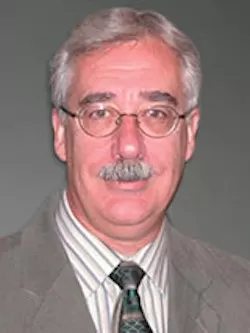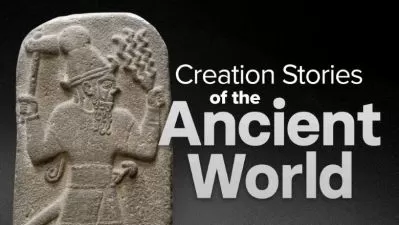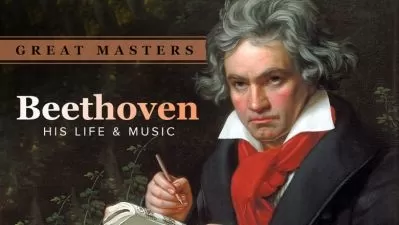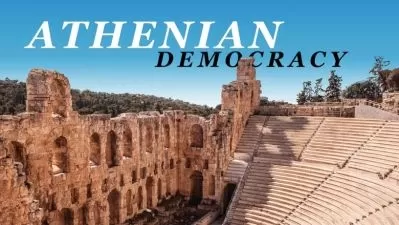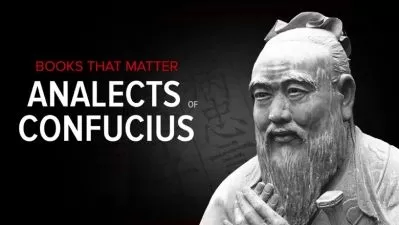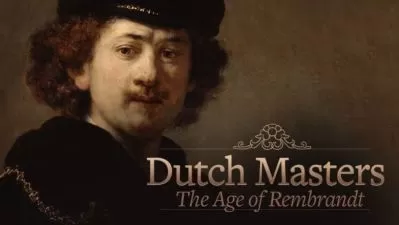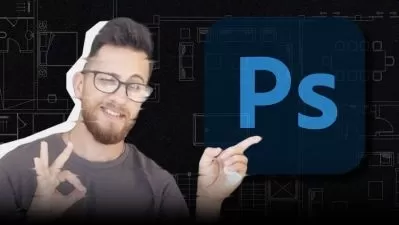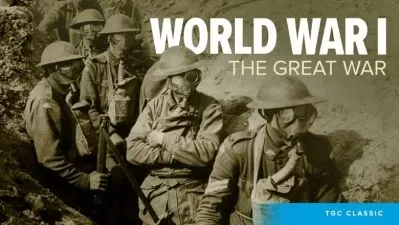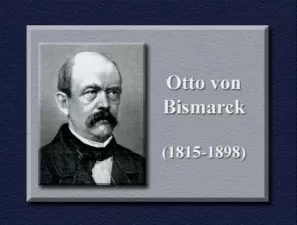Development of European Civilization
Kenneth R. Bartlett
24:32:14
Description
For anyone living in the Western world, Europe is so much more than just a varied mix of travel destinations, an inspiring example of different cultures living side by side, and a set of historical events that forever altered the history of Western civilization. Europe is, in fact, as much an idea as it is a place.
Understanding how Europe evolved is essential for anyone seeking an in-depth grasp of both the history of Western civilization—and its future—for a variety of reasons:
- Almost all of the West's important political, social, cultural, and economic institutions and ideologies either came from Europe or evolved in reaction to it.
- To witness how European civilization developed is to understand why and how the entire Western world became who and what it is.
- Finally, such an understanding is essential if you are to have a nuanced grasp of the important events that dominate the daily news.
In short, and in almost every way that matters, historical Europe was the laboratory in which the world you now live in was conceived and tested. And you'll be living with the consequences of those experiments for the rest of your life.
The Development of European Civilization leads you through the doors of that laboratory and guides you through the development of Europe from the late Middle Ages through the eve of World War II. In these 48 lectures delivered by University of Toronto Professor Kenneth R. Bartlett, whose award-winning teaching skills have been evident in the classroom, in books, and through video lectures for more than 30 years—you'll finally grasp the amazing results of that European laboratory over more than 600 years of history.
Experience the Mosaic of European History
As you follow Professor Bartlett through the dramatic story of European history, you'll learn
- the major ideologies and "isms" that bubbled forth from Europe's constantly fermenting cauldron of debate and conflict, including absolutism, scientism, rationalism, capitalism, nationalism, liberalism, and totalitarianism;
- the forces that intermingled to create the Industrial Revolution and the accompanying economic and social upheavals that would, in turn, create so many more;
- the changing technologies of communication and transportation that would spread the European experience and ideas far and wide;
- the European ideologies of government, including the rule of law, the concept of "the consent of the governed," taxation, an independent judiciary, and other concepts;
- the new roles for religion in European life, from the end of the traditional union of altar and throne to great upheavals such as the Protestant Reformation and the Great Schism; and
- the evolution of the European class system, which influenced the social forces that swirled around it just as much as it was influenced by them.
With The Development of European Civilization, one important idea will become crystal clear to you: Although history may well be made up of events taking place over time, the true meaning of history can never be discerned through a linear recitation of those events. That's because history, as every lecture of this remarkable course proves, is a mosaic—and to grasp that mosaic's meaning is to learn to see history in its entirety; to understand the ways in which ideas, institutions, and social forces have interacted to paint each tile, set it among the others, and, when necessary, shatter them into fragments to replace them with others.
Change the Way You Understand History
To learn to see history in this way requires a course designed to teach it this way, and Professor Bartlett's lectures take an unusual and profoundly thoughtful approach that make The Development of European Civilization an ideal complement to more traditional presentations of European history.
Rather than offering you a laundry list of dates, events, and famous individuals, Professor Bartlett leaves you instead with an understanding of historical and social causality and a stronger appreciation of just why events took place. You'll learn why and how institutions evolved as they did, and what the ideas, culture, and institutions born in Europe have meant—and will continue to mean—to the rest of the Western world. More important: You'll experience Europe's development from a European perspective, further enhancing your existing understanding of both modern Europe and Western nations outside Europe, whose own traditions and institutions have drawn so much from the European experiment.
Although key events and individuals are included in these lectures, they take their importance in this course from their impact on the ideas of their time and the roles that they played in bringing about the key ideas and forces of the events that were yet to come. You'll learn how to see names like Diderot, Calvin, Darwin, Marx, Luther, Mill, Newton, Robespierre, Hitler, Mussolini, Wilson, and so many others in startling new ways. These and other figures, you'll discover, are not only participants in history's great pageant but characters created by forces beyond themselves—forces whose resonances would echo well into our own time.
Witness History in the Making
Each lecture focuses on a particular moment in time and analyzes the circumstances that would drive the evolution of the ideas, forces, and institutions that created European history.
- The Crusades: These fierce medieval wars were far more than a series of religious conflicts. They were perhaps the single most important cause of the shift away from a manorial economy to a money-based economy. Moving knights to the Holy Land required massive concentrations of capital, the establishment of trading cities, and the mobilization of vast numbers of skilled people. None of this could have happened without reliable coinage and systems of commercial law.
- The Industrial Revolution: The consequences of the Industrial Revolution in England reached into almost every aspect of life. This period's great gears meshed not only with the machinery of the economic world but also with that of urbanizing populations, the flow of information, changing beliefs about social justice, new religious freedoms that made practical and scientific information available to nonconformists, and new laws designed to enhance this unprecedented explosion of progress.
- The Dreyfus Affair: The unjust accusation of Alfred Dreyfus, a Jewish officer in the French army, for selling secrets to the Germans in 1894 was a defining moment in the history of modern France. In this single case of military justice gone awry, you see the intersection of forces such as anti-Semitism, military insularity, religion in public life, and support for monarchism.
An Accomplished Professor, a Masterful Historian
One of Professor Bartlett's greatest accomplishments in crafting The Development of European Civilization lies in his ability to sustain his focus on ideas, institutions, social forces, and other abstract concepts without ever being dry, and without losing sight of the human beings around whom those abstractions swirled.
A terrific storyteller, he teaches with great enthusiasm and flow, making his lectures a pleasure to watch or listen to and making it plainly evident why his teaching skills have won him numerous awards and accolades, including the 3M National Teaching Fellowship from the Canadian Society for Teaching and Learning in Higher Education and the President's Teaching Award from the University of Toronto. Moreover, as he effortlessly leads you through general historical trends and specific defining events, Professor Bartlett never leaves you stretching for understanding.
Simply put, Professor Bartlett is an accomplished teacher and a masterful historian. With The Development of European Civilization, this popular Great Courses professor has crafted an extraordinarily integrated learning experience that is sure to be one of the most pleasurable and informative experiences of historical learning you'll ever have.
More details
User Reviews
Rating
Kenneth R. Bartlett
Instructor's CoursesProfessor Kenneth R. Bartlett is a Professor of History at the University of Toronto. He received his Ph.D. from the Centre for Medieval Studies at the University of Toronto in 1978. He was the first director of the University of Toronto Art Centre and founding director of the Office of Teaching Advancement at the university, a position he held until 2009.
Much of Professor Bartlett’s career has been devoted to bringing the culture of European history into undergraduate and graduate classrooms. He has taught regularly in the University of Toronto Summer Abroad programs in Europe. He has been the recipient of numerous teaching awards, most notably, the 3M National Teaching Fellowship, awarded by the Canadian Society for Teaching and Learning in Higher Education, and the inaugural President’s Teaching Award from the University of Toronto. In 2007, Professor Bartlett was one of the 10 finalists in TVOntario’s Best Lecturer Competition, which pits students’ favorite instructors against one another in a battle of charisma, clarity, passion, and conviction. That same year, the professor was recognized with an inaugural Leadership in Faculty Teaching Award by the government of Ontario.
Professor Bartlett is the author of The English in Italy, 1525–1558: A Study in Culture and Politics; The Civilization of the Italian Renaissance: A Sourcebook; and most recently, A Short History of the Italian Renaissance. He is also coeditor or translator of five other books, including Humanism and the Northern Renaissance (with M. McGlynn), and author of more than 35 articles and chapters on European history and culture. He has been the academic consultant and occasional on-camera commentator for the Illuminated Filmworks videos about the Vatican Library and for such television series as The Naked Archaeologist and Museum Secrets.
Together with his wife, Gillian, who herself holds a Ph.D. and is the author of seven books, Professor Bartlett regularly leads tours to Europe for major museums, universities, and cultural organizations.
Professor Bartlett’s other Great Courses include The Development of European Civilization, The Italian Renaissance, and The Italians before Italy: Conflict and Competition in the Mediterranean.

The Great Courses
View courses The Great Courses- language english
- Training sessions 48
- duration 24:32:14
- English subtitles has
- Release Date 2023/05/09





